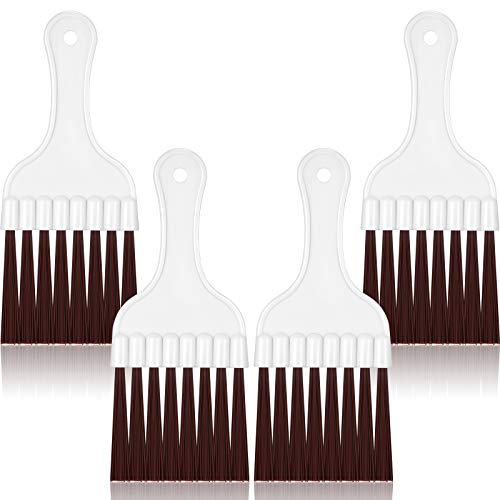Is your air conditioner constantly cycling on and off after only a few minutes? When this happens, it's usually a sign of a bigger problem with your HVAC system or the thermostat itself. We have researched the most common causes for this issue and how to fix them. In this post, we will discuss them.
When an air conditioner cycles on and off repeatedly, the process is referred to as short cycling. This happens when the cycle is shorter than 10 minutes. When it happens, it causes the compressor to turn on and off more than usual. Excessive start/stop cycling can wear out the compressor and ultimately shorten its lifespan.
Here are the most common reasons why your thermostat may shut off repeatedly or short cycle:
- Electronic component failure
- The condenser coils are clogged
- The thermostat is located in a bad location
- Dirty vent filters
- The unit needs refrigerant
- The A/C unit is too big for the space
- The compressor is failing
- Airflow blockage
To find out more about how to remedy these issues, keep reading. We'll also cover other related questions.
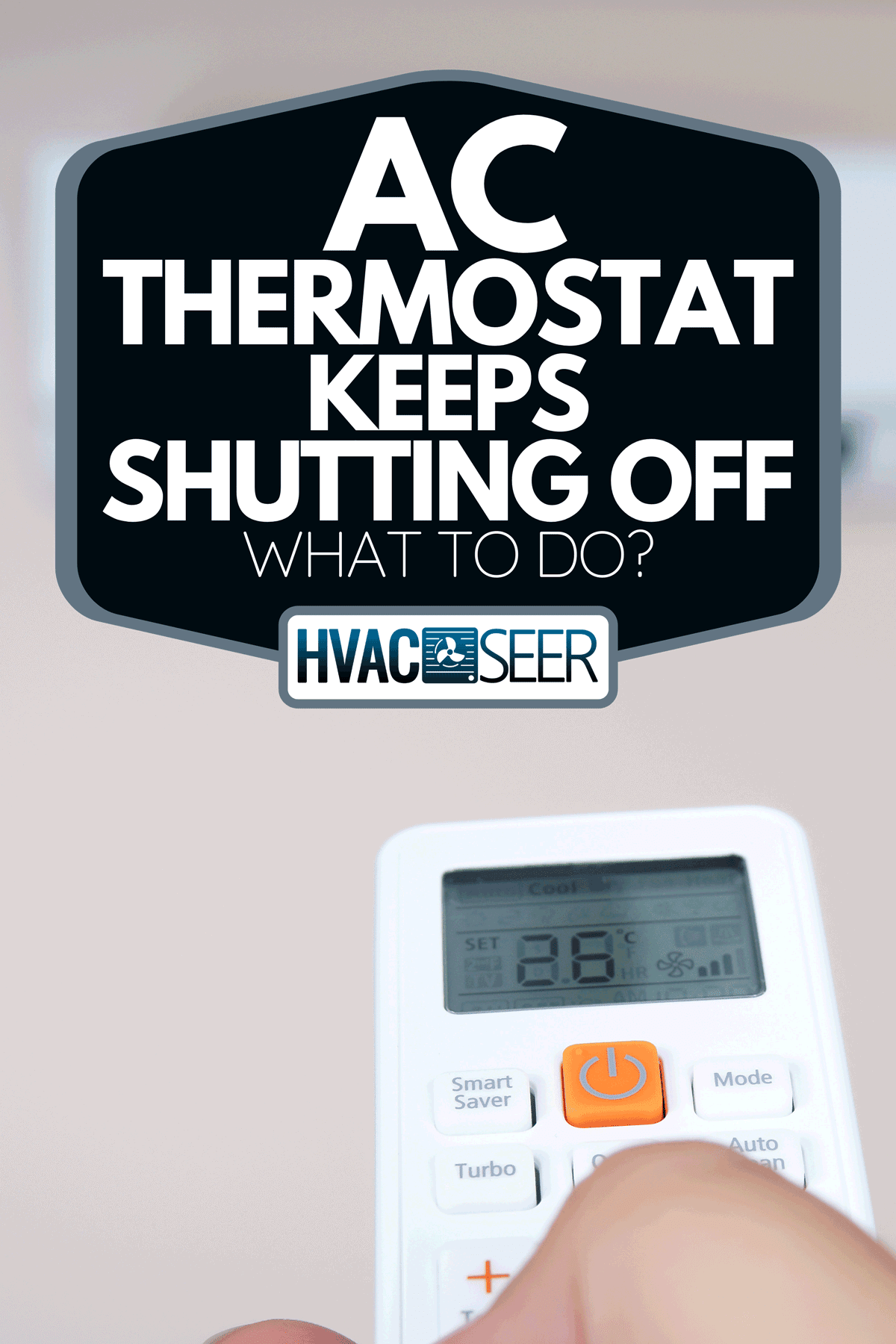
Why does my AC thermostat keep shutting off?
Some of the most common causes of short cycling include:
Electronic component failure
The wiring in your thermostat or another component in your HVAC system can cause the unit to cycle on and off. Typically this may be caused by electrical wires that are burned out or worn out due to old age.
To determine if this is the issue, try taking a look at the connectors in your thermostat to determine if they are melted, discolored, or disconnected. Bad wiring can also cause the capacitor to malfunction or become faulty.
If this is the case, it will turn on and off intermittently, causing the A/C to do the same. You may need to have an experienced HVAC electrician take a look to determine if the wires are causing the issues with your thermostat--it can be hard to inspect for this issue if you don't have experience with electrical components.
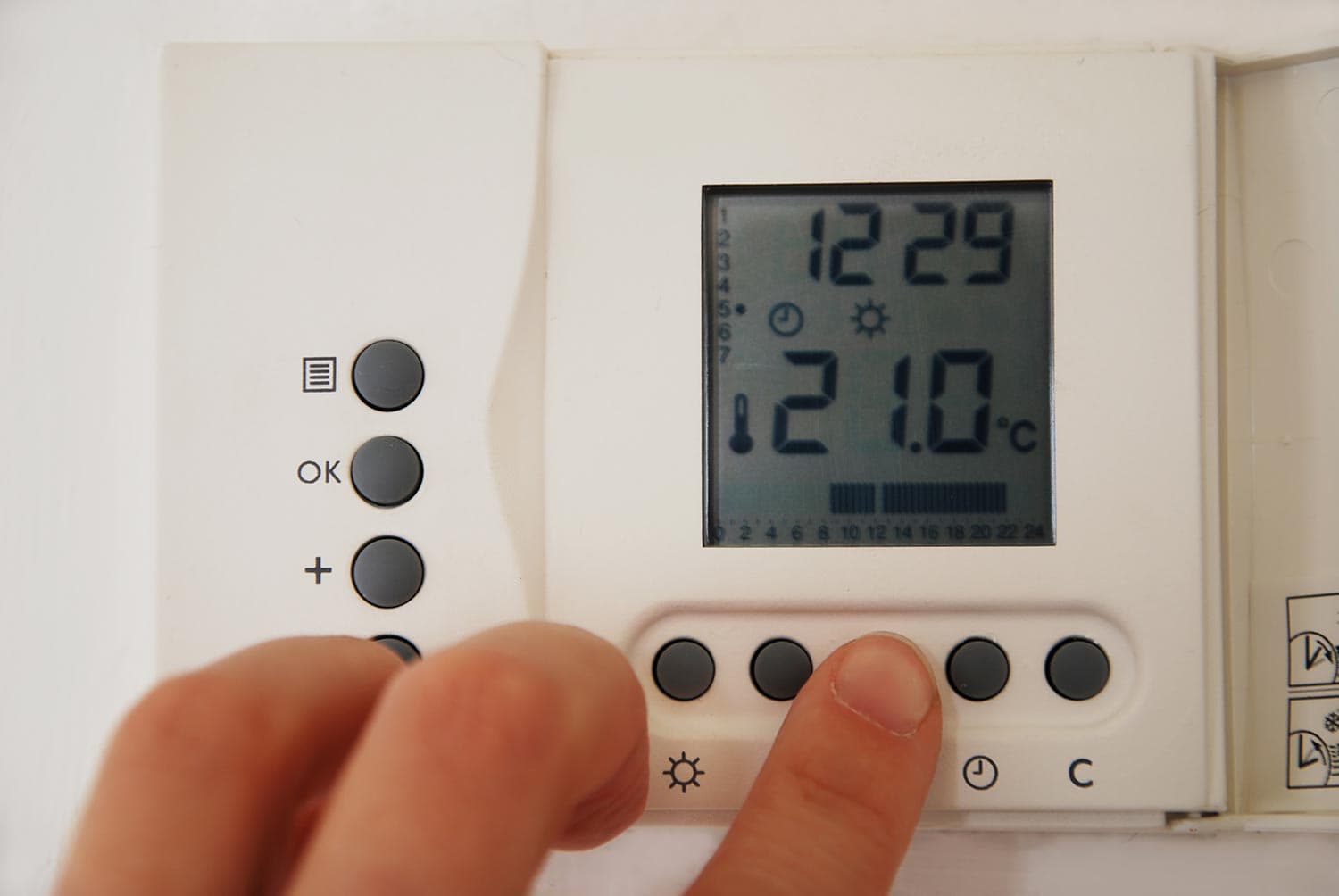
The condenser coils are clogged
If the condenser coils in your air conditioning unit are clogged, the air will be restricted, causing the unit to overheat. And when an air conditioner overheats, it will automatically shut off due to the high limit switch. The purpose of the high limit switch is to prevent the unit from overworking for too long.
Take a look at the condenser coils on your unit to determine if they are clogged with debris or dirt. And if so, clean them yourself using a water hose.
If the condenser coils are caked with dirt, clean them using a soft brush. You can also get an HVAC technician to perform a maintenance cleaning. Maintenance cleanings can range anywhere from $150 to $300.
Find this condenser brush on Amazon.
The thermostat is located in a bad location
Sometimes the thermostat may be located in an area that doesn't represent the central temperature in a specific room or the home entirely. For example, if the thermostat is located next to an exterior door, or the side of a window, it can affect the unit's effectiveness.
In short, the thermostat's location will trick the HVAC unit, causing it to shut off prematurely. If this is the case, you'll need to contact an HVAC technician to have your thermostat moved to a different location.
Dirty vent filters
When the air filters in your HVAC vents are dirty, they can restrict the airflow from the air conditioner or the furnace during the winter months. This can also cause your evaporator coils to freeze over, resulting in the unit shutting off permanently.
The unit needs refrigerant
Air conditioners need refrigerant to continuously pump cool air into the home. If the unit is low on refrigerant or has a leak draining the refrigerant, it can cause the compressor to overwork in order to cool the home. Short cycling is often a result of this due to the inadequate coolant levels in the refrigerant line.
It's best to address this issue as soon as possible, as it can cause the compressor to overwork and ultimately fail. If you suspect that this is the issue, check the current refrigerant level of your air conditioner --though you'll need an HVAC technician to replace it and repair the leak.
The A/C unit is too big for the space
In rare cases, the short cycling can be caused by an oversized air conditioner. Larger air conditioners placed in smaller rooms will turn on and off quickly as they don't require as much power to keep the location cool. On the downside, they can also cause increased humidity, high energy bills, and cold and hot spots within your home.
The compressor is failing
If a compressor begins to fail, it will typically cycle on and off before it shuts down completely. This component is one of the most central parts of an AC unit, and if it is broken, you'll need to contact a technician so that it can be replaced.
Airflow blockage
When the airflow between your A/C unit and your home is inefficient, the result will be a compressor that overworks (cycling on and off) to make up for the air loss. Ultimately, the compressor will overheat and fail at some point. The most common reasons for airflow restrictions are clogged evaporator coils, vent ducts, or air filters.
If you suspect that this is the issue, check all of these areas to ensure that they are not the cause. If the evaporator coils are clogged, you may notice the frost building up around them. And if the issue is with the vent ducts, you may notice a hissing sound coming from them when the unit cycles on.
How do I reset my thermostat?
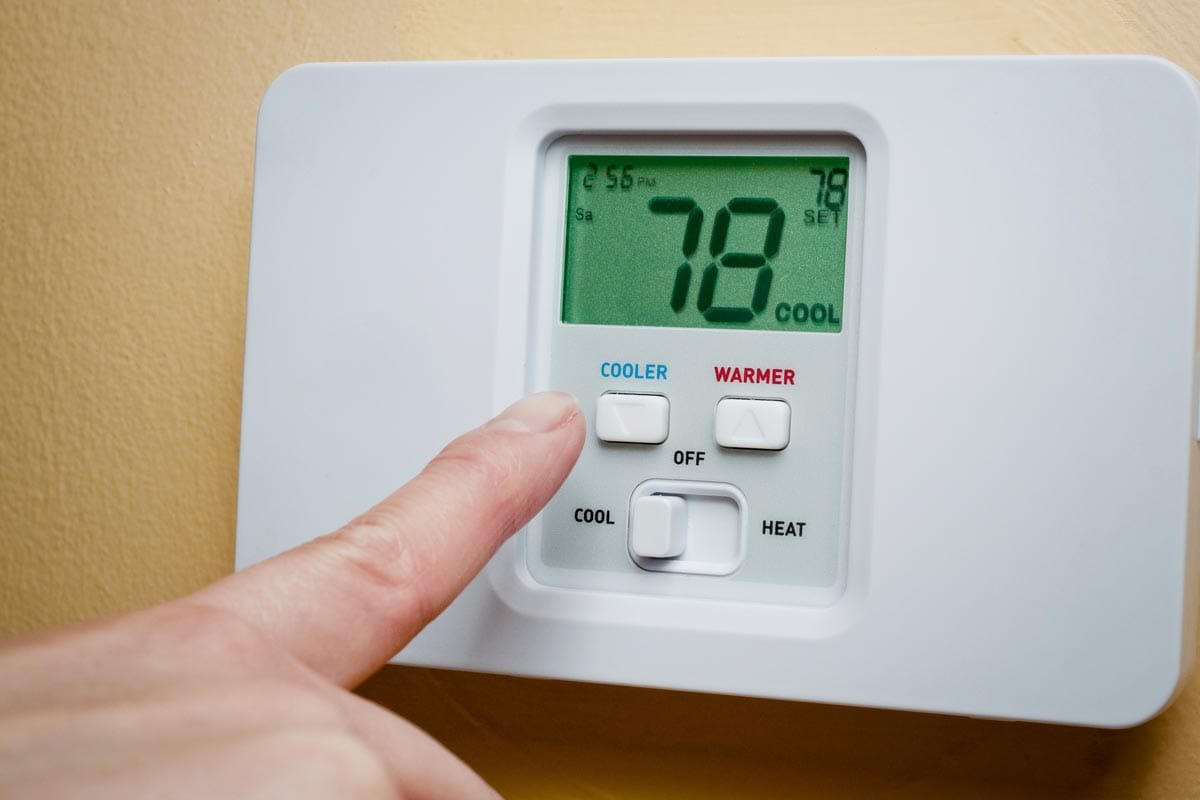
The process to reset your thermostat will vary depending on the make and model of your air conditioner. However, here is a quick overview of a few of the methods that will work to reset almost any air conditioning unit.
Remove the batteries
Take out the batteries to your thermostat and install them backward. Next, wait for 5 to 10 seconds and then reinstall them properly to reset the air conditioning unit.
Use the reset button
Check your owner's manual to learn how to reset the air conditioner. Some units will have a simple "Reset" button that you can press to do this, while others may have a process consisting of pressing multiple buttons for the reset. If the button is recessed inside the control panel, you can take a paperclip or the end of a ballpoint pen to press and hold the button.
Flip the circuit breaker switch
If none of the above-mentioned methods work and you want to reset the unit as soon as possible, you can flip the circuit breaker. To do this, find the switch that specifically corresponds to the HVAC system or the air conditioner unit. Flip the switch down and wait about 30 seconds and then flip the breaker switch back into the "On" position.
Take note that doing this may reset other electrical appliances in your home. If the circuit breaker reset doesn't resolve the issue with your air conditioning unit, you may need to contact a professional for guidance.
When should I reset my thermostat?
You should rest your thermostat if the HVAC system is malfunctioning--this is usually the first step to troubleshooting the issue. Any time you are having an operational issue with the A/C unit, resetting it can help to rectify it.
Why does my AC compressor stop after a few minutes?
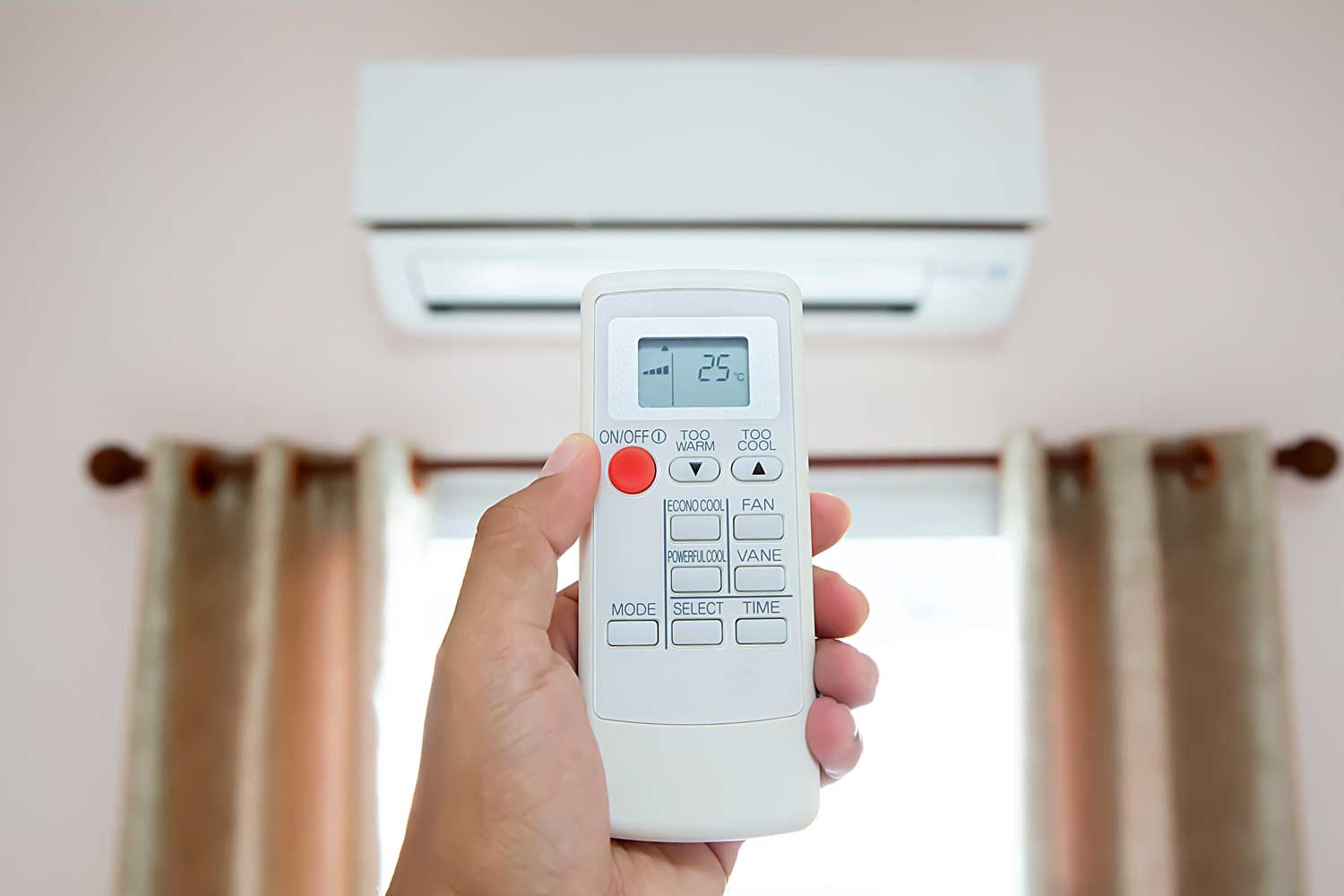
If the compressor stops after a few minutes, it could be leading to failure. This could be caused by airflow restrictions within the condenser coil or other system components.
The issue could also be due to wiring within the compressor itself or within the thermostat for the A/C unit. If you aren't able to troubleshoot the issue using your user's manual, it's best to contact a qualified HVAC technician to help diagnose the compressor.
If the compressor is failing, it's best to replace it as soon as possible to prevent it from going out completely. A new compressor can range anywhere from $135 to over $250, depending on the make and model of your air conditioner. You may also want to factor in the age and overall condition of your air conditioner before deciding to replace the compressor alone.
How much does it cost to replace a thermostat?
While the cost will vary by make and model, a thermostat can cost anywhere from $15 to over $300.
Wrapping Things Up
We hope this post has helped illustrate how to troubleshoot a thermostat that cycles on and off. Remember, if you can't seem to fix the issue yourself, it's always best to have an HVAC professional inspect the unit to offer a professional diagnosis.
Before you go, be sure to check out some of our other posts:

